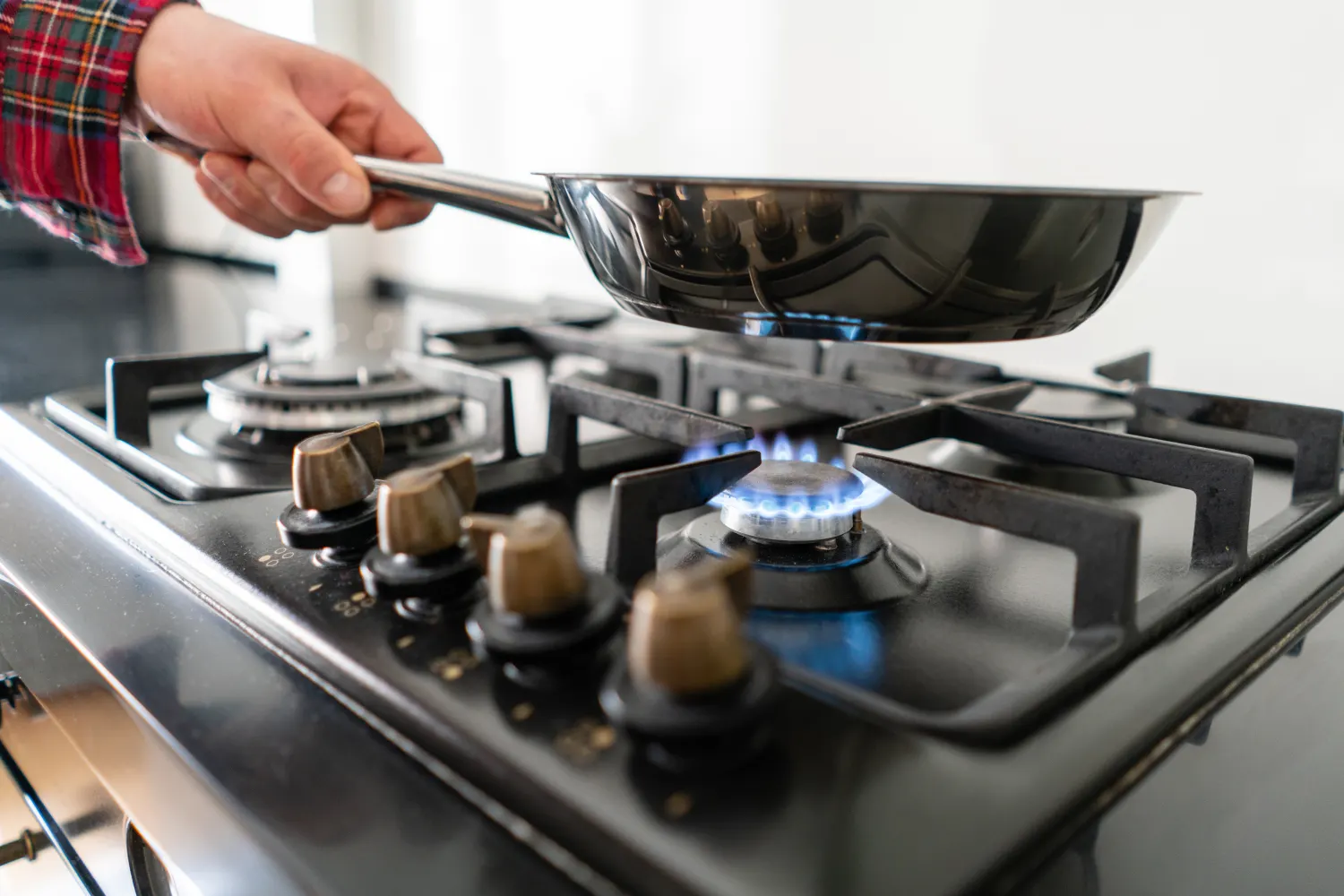
What Is Granitestone Cookware Made Of? Is It Safe?
When it comes to choosing the right cookware for your kitchen, safety and quality are paramount. Granitestone cookware has gained popularity in recent years, but what exactly is it made of? In this comprehensive guide, we’ll dive deep into the composition of cookware, addressing its safety and suitability for your culinary needs.
Granitestone cookware has emerged as a modern and versatile option for home cooks and professional chefs alike. It’s essential to understand its construction, materials, and potential benefits before adding it to your kitchen arsenal. In this article, we’ll explore the components that make up cookware, examine its safety aspects, and provide you with valuable insights to help you make an informed decision.
What is Granitestone Cookware Made Of?
Granitestone cookware is primarily composed of a fusion of natural mineral and nonstick ceramic coating. This unique combination is designed to offer exceptional heat distribution, nonstick properties, and durability. The core components include:
1. Aluminum Core
Granite stone cookware typically features an aluminum core, known for its excellent heat conduction properties. The aluminum core ensures even heat distribution across the cooking surface, preventing hotspots and enabling precise temperature control.
2. Mineral Coating
The cookware’s interior is coated with a mineral layer infused with granite particles. This coating contributes to its nonstick characteristics and adds a distinctive granular texture that enhances the cooking experience.
3. Ceramic Nonstick Layer
On top of the mineral coating, Granite stone cookware is finished with a ceramic nonstick layer. This layer is designed to provide easy food release, making cooking and cleaning a breeze without the need for excessive oil or butter.
4. Exterior Coating
The exterior of granite cookware often features a high-temperature-resistant coating that enhances its durability and aesthetic appeal.
Is Granitestone Cookware Safe?
Granite cookware is generally considered safe for cooking purposes. The combination of aluminum, mineral, and ceramic coatings offers several benefits that contribute to its safety profile:
Non-Toxic Composition: The mineral and ceramic coatings used in Granite stone cookware are typically free from harmful chemicals like PFOA and PFOS, ensuring that your food remains uncontaminated.
Even Heat Distribution: The aluminum core’s ability to distribute heat evenly helps prevent overheating and burning, reducing the risk of releasing toxic fumes.
Scratch-Resistant Surface: The mineral-infused coating adds a level of scratch resistance, reducing the likelihood of metal particles leaching into your food.
Easy Cleaning: The nonstick ceramic layer minimizes the need for excessive scrubbing or harsh cleaning agents, preventing potential exposure to harmful substances.
Benefits of Granitestone Cookware
The cookware offers a range of benefits that make it a popular choice among cooking enthusiasts:
1. Excellent Heat Distribution
The aluminum core ensures consistent heat distribution across the cooking surface, promoting even cooking and reducing the risk of burned or undercooked food.
2. Nonstick Cooking
The ceramic nonstick layer allows you to cook with minimal oil or fat, promoting healthier meal preparation and easier cleanup.
3. Durability
Granitestone cookware is designed to withstand high temperatures and resist scratching, ensuring long-lasting performance even with regular use.
4. Versatility
From stovetop to oven, Granitestone cookware can handle a variety of cooking methods, including sautéing, frying, boiling, and baking.
FAQs About Granitestone Cookware
How do I clean Granitestone cookware?
Cleaning cookware is a breeze. Simply hand wash the cookware with mild detergent and a soft sponge. Avoid abrasive scrubbers or metal utensils that could potentially damage the nonstick surface.
Can I use metal utensils with Granite stone cookware?
It’s recommended to use utensils made of wood, silicone, or other non-metal materials to prevent scratching the nonstick surface of cookware.
Is Granitestone cookware dishwasher safe?
While Granitestone cookware is generally easy to clean by hand, it’s advisable to avoid using the dishwasher, as the harsh detergents and high water pressure could affect the longevity of the nonstick coating.
Are there granite concerns with Granitestone cookware?
Overall, Granitestone cookware is safe for cooking. However, like any cookware, it’s essential to use proper cooking techniques and avoid overheating to prevent potential degradation of the nonstick coating.
Can Granitestone cookware be used on induction cooktops?
Some models of cookware are compatible with induction cooktops, thanks to their magnetic stainless steel bases. Check the manufacturer’s specifications to ensure compatibility.
Is Granitestone cookware oven-safe?
Yes, cookware is generally oven-safe up to a certain temperature. Refer to the manufacturer’s guidelines for specific temperature limits.
Granitestone cookware is a modern and versatile option for your kitchen, offering a combination of even heat distribution, nonstick cooking, and durability. Composed of an aluminum core, mineral coating, and ceramic nonstick layer, it provides a safe and effective cooking experience. By following proper care instructions and cooking techniques, you can enjoy the benefits of cookware while ensuring its long-lasting performance in your culinary endeavors.